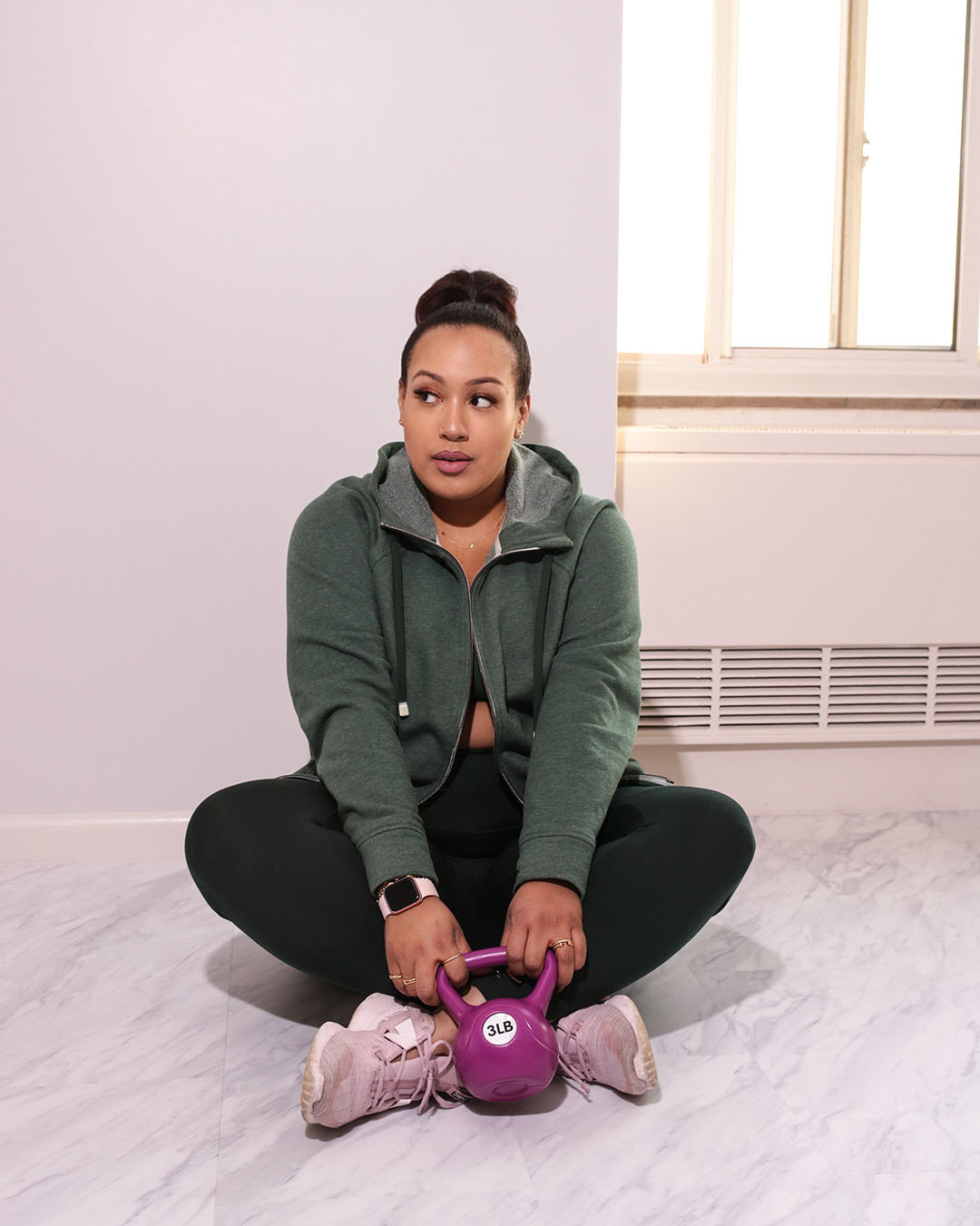|
I asked, you answered. For Minority Health Month, I asked my audience what Women's Health questions do you have. Ya'll showed out! I am so happy to see a lot of women asking questions and taking control of their health needs. Here are some of the questions/answers below!
What is being done locally to change the racial disparities in pregnancy-related deaths? Cradle Cincinnati is a local initiative founded in 2012 aimed at reducing infant mortality in our local community and helping children to reach their 1st birthday. Their mission is to improve preconception health, pregnancy health and infant health to reduce preterm birth in Hamilton County. Hamilton county once ranked in the top 10% for infant deaths in the country. Recently, through this multidisciplinary community initiative in 2020, for the second year in a row, Hamilton county's black infant mortality rate has been lower than the national average. For perspective, in 2017, the rate was 18.2%. We currently site at 10.6%. That is a 42% decline (cradlecincinnati.org). How has COVID-19 affected the black community differently? COVID 19 has disproportionately affected the black community mostly due to a preexisting lack of health equity. We tend to suffer from more chronic diseases which often go untreated or under treated. This increases the risk for a prolonged and more devastating course of infection. There are social considerations such as those living in multi-generational homes, or living in substandard housing, increasing the exposure risk to other family members. Black people tend to work in service industry jobs as "Essential workers" assuring that they are more frequently exposed to the virus. Lack of monetary resources due to working in low wage-earning positions, means they cannot "stay home" and "stay safe". Is it true black women metabolize anesthesia faster than most people? Not this is not a true statement. While it is true that men and women metabolize anesthesia differently, there are no data suggesting that differences exist with respect to race. Am I more at risk of getting diabetes because I am black? The correlation between diabetes risk and being African American is mostly due to higher incidences of overweight and obesity in the black community. In the US, black middle-aged individuals are twice as likely as their white counterparts to develop diabetes. In addition, they also suffer worse outcomes. The highest risk group is AA middle aged females. This is once again due to decreased rates of health equity and the multiple social determinants of health i.e. socioeconomic status, behavioral risk factors, low-income neighborhoods, and psychosocial factors. However, most of the disparity can be related back to behavioral risk factors like, increased BMI, increased cholesterol levels, high blood pressure, and tobacco use (CDC.gov). Is the sun really that bad for me? No. The sun is not bad for you, but it not good to be exposed to sun in high doses without sunscreen. Black people are still at risk for developing skin cancer, just as much as white counterparts. Unfortunately, a lot of providers are not properly trained in assessing skin conditions in darker skinned individuals. Moreover, much of the research on skin cancers is geared towards light skinned individuals. Oftentimes, black people are not prescribed sunscreen as a prophylactic measure, or after incidences of severe sun burn. Many times, skin lesions go undiagnosed or underdiagnosed. It is important to remember to do full skin assessments on yourself and always wear sunscreen in the sun, even on overcast days. How can I improve my ability to relax and to stay hydrated? Remembering to practice self-care is vital to overall health and well-being. You cannot pour from an empty vessel. I recommend spending at least 20 minutes per day, perhaps split into 10-minute increments, sitting quietly, deep breathing, drinking water, and reflecting quietly. It is the work of a moment but makes a huge difference in your ability to concentrate and focus on tasks. Consider carrying a water bottle during the day and refilling so you get anywhere from 56-64 oz of water per day. How do we control our thyroid? Your thyroid affects many of your bodily functions and when you are hyper or hypothyroid, there is often a cascade of symptoms that follow. If you do not have a diagnosed thyroid condition, then following a healthy diet is sufficient. If you have a diagnosed thyroid condition, then medication adherence is key. Otherwise, nutrients that are important towards maintaining a healthy thyroid level are iodine, selenium and zinc. All of which can be obtained by following a well-rounded diet. How do you keep a balanced mood? See my answers to question #2 above. Also consider adding in 3-5 days per week of aerobic exercise in the form of walking, running, dancing, swimming or hiking. You want to do anything that sustains your heart rate for at least 30 minutes per session. Exercise sends signals to the reward centers of the brain, which helps increase feelings of pleasure, motivation, and hopefulness and therefore increases the amount of available dopamine and dopamine receptors. How can I stop feeling so lethargic and tired each day and increase my energy levels? See my answers to questions #2 and 4 above. I would also add to that the importance of getting adequate sleep each night. The most optimal amount of sleep to wake up feeling refreshed and well rested is 7-8 hours of sleep consistently. It is a misconception to think that you catch up on sleep. Lack of proper sleep leads to decreased levels of concentration, irritability, lethargy and overall fatigue. We also tend to make poorer choices in food and overindulge in caffeine when we are in a state of sleep deprivation. How often should I see a doctor (even if I don’t feel sick)? Yes, you should see a doctor even when you are not sick. At best, a yearly physical is key to staying on top of regular screening exams such as mammograms or pelvic/PAP exams for women, testicular exams or prostate exams for men, colonoscopies for men and women, and regular screening cholesterol and blood glucose screenings to name a few. When you hit a weight loss plateau, what is the best way to overcome it? The best way to ensure weight loss is by first making sure your calorie intake is less than your calories burned. In plain and simple terms, you want to follow a low-calorie diet, not starvation, but low calorie with increased proteins, healthy fats and low carbohydrates, AND couple that with vigorous exercise several times per week. Avoid snacking and change you exercise routine frequently so that your body does not develop muscle memory. Be open to various forms of exercise that include aerobic activity and weight training. During the first few weeks of beginning a new exercise regimen, rapid weight loss is normal. As you lose weight, your metabolism begins to decline, so that the weight does not come off as quickly as it did in the beginning. You must either increase the physical activity or continue to decrease your caloric intake. How can I increase my metabolism? See the answer to #1 above. This helps you to continue to lose weight and move quickly past the plateau without losing momentum. What is an “anti-inflammatory” diet and is it really helpful? "Food as medicine" is a very important concept that we as providers stress to patients. All remedies cannot be found in the medicine cabinet. When the body begins to sense a foreign invader i.e. illness, it mounts a response labels as inflammation. However, when any of the above conditions are present, that we discussed earlier such as sleep deprivation, thyroid dysfunction, poorly controlled diabetes, increased stress levels, you can maintain a state of constant inflammation. The key to maintaining an anti-inflammatory diet is avoiding refined carbohydrates, soda, large amounts of red meat and saturated fats like margarine and lard. An anti-inflammatory diet includes fatty fish (salmon, tuna, mackerel), nuts, green leafy vegetable, fruits, tomatoes, olive oil or avocado oil. These foods are high in natural antioxidants and polyphenols and help to reduce inflammation which in turn lowers cardiovascular disease risk and diabetes control. Also, you feel better physically and mentally.
0 Comments
Leave a Reply. |
AuthorMorgan Angelique Owens is the author of "Finding My Sparkle" and Founder & CEO of the MAO Brand, Professional Pretty, and Curvy Cardio, LLC. Archives
April 2024
Categories
All
Let's Work Together!
Email Me |
Company |
|



 RSS Feed
RSS Feed